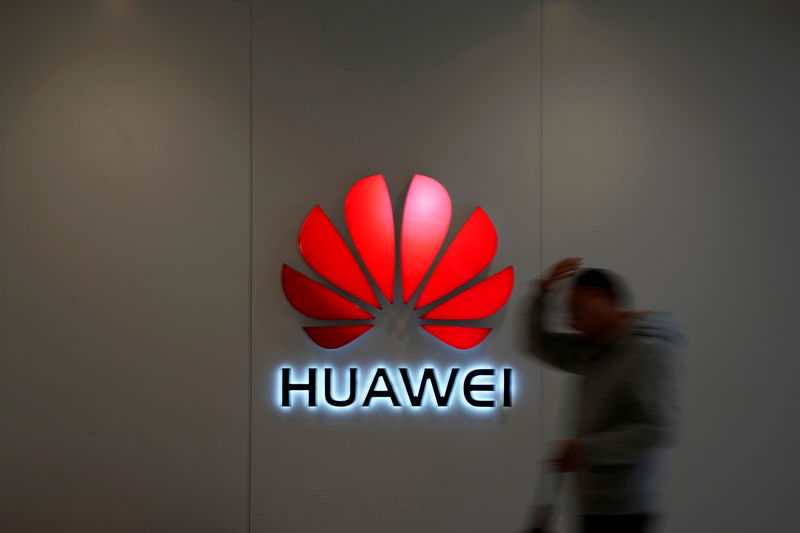* Graphic: World FX rates in 2019 http://tmsnrt.rs/2egbfVh
* Risk sentiment improves on global stimulus hopes
* Huawei decision could make or break currency market mood
* Traders weigh policymakers' response to trade war (Adds details on Swiss franc, yuan, German stimulus)
By Stanley White
TOKYO, Aug 19 (Reuters) - Safe-haven currencies such as the yen and Swiss franc were under pressure on Monday as expectations that policymakers would unleash new stimulus eased immediate concerns about a slowing global economy.
Such hopes found support from the Chinese central bank's interest rate reforms over the weekend that are expected to lower corporate borrowing costs, and reports of new fiscal stimulus in Germany.
However, investor optimism is likely to be capped ahead of a U.S. decision later on Monday on whether to continue to allow China's Huawei Technologies to buy supplies from American companies.
"Huawei is a big test to see whether the current risk-on mood will continue in the currency market," said Takuya Kanda, general manager of the research department at Gaitame.com Research Institute.
"There's a sense of calm right now because the stimulus story is supporting the dollar against safe-havens, but I'm not sure how long this calm will last," he added.
The dollar index .DXY , which measures the greenback against six major currencies, was marginally higher in Asia at 98.201, close to a two-week high of 98.339 reached on Friday.
Against the yen JPY=EBS , the dollar was little changed at 106.37 yen, near a one-week high of 106.98 yen.
The yen and the Swiss franc, both of which tend to be bought as a safe-haven during times of economic uncertainty, fell slightly on Monday versus other currencies.
Risk sentiment could improve further if Washington offers some concessions to Huawei, which could make a resolution of the U.S.-China trade war more likely.
The U.S. government blacklisted Huawei Technologies in May, accusing the world's largest telecom equipment maker of espionage and intellectual property theft. The allegations, which Huawei denies, were a serious escalation in the trade war.
The U.S. Commerce Department is expected to extend a reprieve given to Huawei that permits the Chinese firm to buy supplies from U.S. firms so that it can service existing customers, two sources familiar with the situation told Reuters on Friday. President Donald Trump said on Sunday he did not want the United States to do business with Huawei for national security reasons, casting doubt over the decision. a rejection for Huawei could easily fuel another bout of risk aversion, risk-sensitive currencies appeared to have found some support for now.
The dollar edged higher to 0.9795 Swiss franc CHF= , approaching the highest in almost two weeks.
The euro EURCHF= also rose 0.2% to 1.0865 Swiss francs.
The Australian dollar drifted higher to 72.12 yen AUDJPY= , on course for its third day of gains.
Gold, another safe-haven asset, fell 0.3% in the spot market XAU= to $1,508.40 per ounce.
The People's Bank of China unveiled a key interest rate reform on Saturday to help steer borrowing costs lower for companies and support a slowing economy that has been hurt by the trade war with the United States. the onshore market, the yuan CNY=CFXS traded at 7.0447, little changed on the day. In the offshore market, the dollar CNH=D3 rose 0.2% to 7.0577 yuan.
The details of Chinese stimulus came after German media reported that the German government may be open to running a fiscal deficit to boost growth.
Hopes for stimulus to help Germany's economy, which is on the brink of recession, also rose after Finance Minister Olaf Scholz suggested the government is ready to spend.
Scholz said on Sunday the global financial crisis in 2008 and 2009 cost Germany roughly 50 billion euros ($55.45 billion), but Germany has the fiscal strength to spend a similar amount to counter any future economic crisis. and Germany are two major global exporters that play a crucial role in world trade, so any steps to bolster these two economies is a positive for the global economic outlook. ($1 = 0.9017 euros)
